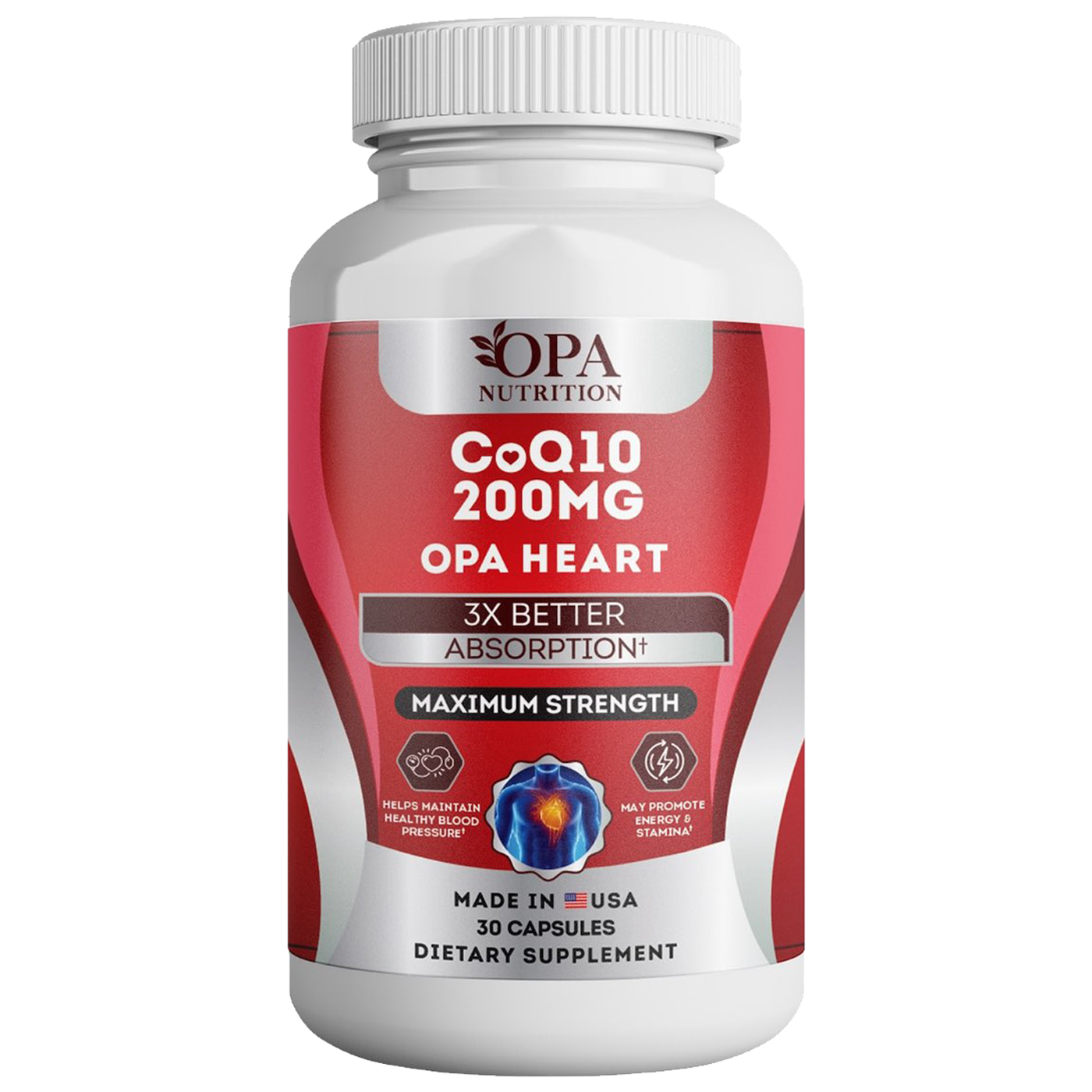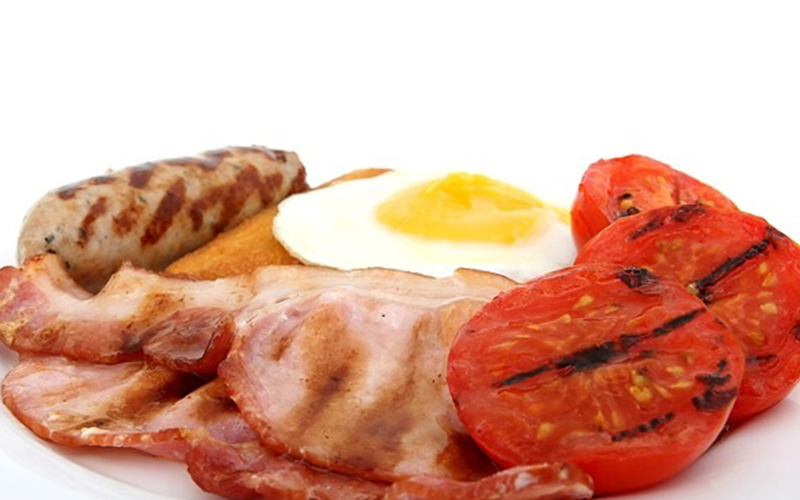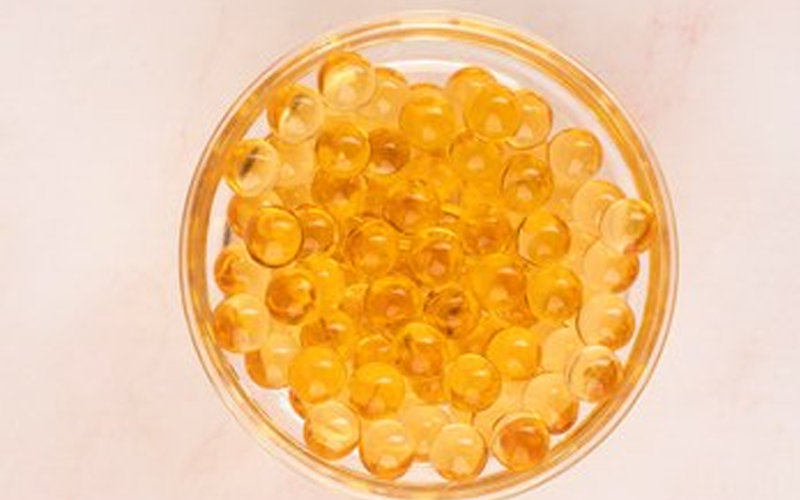Are you tired of feeling sluggish and looking for a way to boost your energy levels, support your heart health, and potentially enhance exercise performance? Coenzyme Q10 (CoQ10) might be the answer to your prayers. This essential nutrient, naturally produced in our body, has a myriad of health benefits, especially for those who are aging. Do you take CoQ10 with food? - It can also be found in various food sources, and it's recommended to take CoQ10 with food for better absorption. But how do you ensure you're getting enough, and what are the different supplement options available? In this blog post, we will delve into the world of CoQ10, exploring its benefits, dietary sources, and the factors to consider when choosing the right supplement for you.
Short Summary
- CoQ10 is an essential nutrient for overall health and wellbeing, playing a role in multiple body systems.
- Aging causes CoQ10 levels to decrease significantly, so supplementation becomes increasingly important.
- Taking CoQ10 with fatty foods can maximize its absorption and utilization by the body. It's best to consult a doctor for proper dosage recommendations.

OPA Heart
The #1 CoQ10 for Heart Health
Understanding CoQ10: Its Role and Importance

Coenzyme Q10, a fat-soluble coenzyme, is present in every cell of our body and plays a critical role in energy production, heart health, and as a powerful antioxidant. It assists in converting nutrients into adenosine triphosphate (ATP), regulates cellular autophagy and rejuvenation, and combats oxidative stress by neutralizing free radicals.
As we age, our body's CoQ10 levels naturally decline, making supplementation essential for many individuals to maintain optimal health.
CoQ10's Function in the Body
CoQ10 is indispensable for the optimal functioning of several organ systems, such as the heart, brain, and muscles. Its potential benefits for cardiac health include improved blood pressure levels, reduced levels of LDL cholesterol, and increased levels of HDL cholesterol. CoQ10 supplementation may even enhance exercise performance, as evidenced by a clinical study that revealed significant enhancements in maximum velocity and a decrease in general fatigue.
In addition to its cardiovascular benefits, CoQ10 has been shown to improve both male and female fertility. For men, studies suggest that CoQ10 may help sperm move more efficiently and increase the number of sperm found in semen samples, potentially increasing the chances of conception. For women, CoQ10 supplementation has been associated with improved egg quality, pregnancy outcomes, and embryo quality.
The Impact of Aging on CoQ10 Levels
Aging has a significant impact on our body's CoQ10 levels. Research has shown that our CoQ10 levels start to decrease as early as age 26, particularly in the heart. For our skin, it is not until around the age of 30 that we see a drop in CoQ10 levels. By age 66, overall CoQ10 production may be reduced to half of its production at age 25.
This decline in CoQ10 levels is one of the reasons why supplementation becomes increasingly important as we age.
Dietary Sources of CoQ10

While our body naturally produces CoQ10, we can also obtain it through dietary sources, which include both animal-based and plant-based options. Animal-based sources of CoQ10 consist of organ meats, fish, and eggs, while plant-based sources include nuts, seeds, and legumes.
Ensuring a balanced diet rich in these CoQ10 sources can help maintain optimal levels of this essential nutrient.
Animal-Based Sources
The primary animal-based sources of CoQ10 include oily fish (e.g., salmon and tuna), organ meats (e.g., liver), and red meat. These sources are not only abundant in CoQ10, but also provide a natural source that is more bioavailable than plant-derived sources.
Incorporating these foods into your diet can help boost your CoQ10 levels and support overall health.
Plant-Based Sources
For those following a plant-based diet or looking to diversify their CoQ10 sources, options include extra virgin olive oil, corn oil, peanut oil, soybean products (such as tofu, soy milk, and soy yogurt), chia seeds, almonds, Lima beans, spinach, and Brussels sprouts.
These sources are not only rich in CoQ10, but also packed with other vitamins and minerals that contribute to overall wellness.
CoQ10 Supplementation: When and Why?

CoQ10 supplementation is recommended for age-related decline, health conditions, and medications that deplete CoQ10 levels. It is essential to consult with a healthcare professional to determine the appropriate dosage and supplementation schedule based on your individual needs.
The benefits of CoQ10 supplementation include restoring damaged skin, immune function, and combating oxidative stress.
Age-Related Decline
As mentioned earlier, CoQ10 levels naturally decrease with age, which can lead to various age-related issues. CoQ10 supplementation may help counteract these effects by restoring damaged skin and immune function.
By supplementing with CoQ10, you can ensure that your body maintains optimal levels of this essential nutrient, supporting overall health and well-being.
Health Conditions and Medications
Certain health conditions, such as cardiovascular disease, chronic kidney disease, type II diabetes, cancer, and vitamin deficiencies, may affect CoQ10 levels. Additionally, some medications, including statins, can also deplete CoQ10 levels.
Research has shown that CoQ10 supplementation can lower the frequency of hospital visits for cardiac issues. If you have a particular health condition or are taking certain medications, it is essential to consult with your doctor to determine if CoQ10 supplementation is right for you.
Timing Your CoQ10 Intake

Timing your CoQ10 intake is crucial for maximizing its benefits. Experts recommend taking CoQ10 in the morning due to its energizing effect and to avoid sleep disruption.
However, individual factors such as age, health conditions, and medications may influence the best time to take CoQ10, so it is essential to consult with a healthcare professional to determine the most suitable timing for you.
Morning vs. Night
Taking CoQ10 in the morning is believed to be the most beneficial time, as it can provide an energizing effect and support overall health throughout the day. On the other hand, taking CoQ10 at night may cause sleep disruption due to its energizing properties.
If you are taking certain medications that interact with CoQ10, it might be best to move your CoQ10 intake to lunch or dinnertime.
Individual Factors and Considerations
When determining the best time to take CoQ10, it is important to consider individual factors such as age, health conditions, and medications. For example, older adults may require a higher dosage of CoQ10 to counteract the age-related decline in CoQ10 levels.
Additionally, individuals with certain health conditions or taking specific medications may need to adjust the timing of their CoQ10 intake to avoid potential interactions. Consulting with a healthcare professional can help you determine the most appropriate timing for your CoQ10 intake.
Maximizing CoQ10 Absorption: Taking CoQ10 with Food

To maximize the absorption of CoQ10, it is essential to take it with food, preferably fatty foods. The fat-soluble nature of CoQ10 requires the presence of dietary fat to ensure top-notch absorption.
Taking CoQ10 with food is the best way to ensure that your body is able to absorb the maximum amount of the nutrient. Fats are especially important for absorption, as CoQ10 is important for absorption.
Fat-Soluble Nature of CoQ10
Due to its fat-soluble nature, CoQ10 relies on the presence of dietary fat for optimal absorption into the body. Therefore, it is crucial to take CoQ10 with a meal or snack containing a fat source to ensure that your body can efficiently absorb and utilize this essential nutrient.
Best Foods to Pair with CoQ10
To maximize CoQ10 absorption, pair it with foods rich in healthy fats such as avocado, olive oil, eggs, fatty fish, nuts, seeds, and nut butters. By consuming CoQ10 with these fat sources, you can ensure that your body absorbs and utilizes this essential nutrient effectively.
Dosage and Safety Concerns

It is essential to discuss CoQ10 dosage and safety concerns with a doctor, as there is no one-size-fits-all CoQ10 dosage. The proper dosage depends on several factors such as health support area, age, baseline intake, and status.
In general, CoQ10 supplementation appears to be safe, with no major adverse effects reported in clinical studies.
Determining the Right Dosage
The right dosage of CoQ10 depends on factors such as health support area, age, baseline intake, and status. Generally, a daily dose of 100 milligrams to 200 milligrams is suggested, with the highest recommended dose being 1,200 mg.
However, it is essential to consult with your physician to determine the appropriate dosage for your unique needs and circumstances.
Potential Side Effects and Interactions
While CoQ10 supplementation is generally considered safe, some individuals may experience side effects such as nausea, diarrhea, headaches, and skin rash, especially when taking high doses. People with chronic diseases, including heart failure, liver problems, and diabetes, should exercise caution when considering the use of this supplement.
Additionally, CoQ10 may interact with certain medications, such as blood thinners, statins, and anticoagulants, so it is essential to consult with your doctor before taking a CoQ10 supplement.
CoQ10 Supplement Options: Ubiquinol vs. Ubiquinone

CoQ10 supplement options include ubiquinol and ubiquinone, with bioavailability differences between the two. Ubiquinol is the reduced form of CoQ10, while ubiquinone is the oxidized form.
Choosing the right supplement based on your individual needs is crucial to ensure that you get the most out of your CoQ10 supplementation.
Bioavailability Differences
Ubiquinol is generally considered to be better absorbed and more bioavailable than ubiquinone, making it the preferred supplement option for many individuals.
However, some studies have not revealed a significant difference in bioavailability between the two forms, so it is essential to consult with a healthcare professional to determine the most suitable option for you.
Choosing the Right Supplement
When selecting a CoQ10 supplement, factors such as age, health conditions, and medications should be taken into account to choose the most suitable option. Opting for a supplement that utilizes ubiquinol can ensure that your body effectively absorbs and utilizes the CoQ10, providing you with the maximum health benefits.
Consult with a healthcare professional to determine the best CoQ10 supplement for your individual needs.
Summary
In conclusion, CoQ10 is an essential nutrient that plays a crucial role in energy production, heart health, and antioxidation in the body. As our CoQ10 levels naturally decline with age, supplementation becomes increasingly important to maintain optimal health. Understanding the different dietary sources of CoQ10, as well as the various supplement options available, is vital to ensuring that you get the most out of your CoQ10 intake.
By carefully considering factors such as age, health conditions, and medications, and by consulting with a healthcare professional, you can make informed decisions about CoQ10 supplementation, its timing, and the best way to maximize its absorption. Take charge of your CoQ10 intake today and experience the myriad of health benefits that this powerful nutrient has to offer.
Frequently Asked Questions
It is generally recommended to take CoQ10 with a meal containing fat in order to improve its absorption.
Taking it at night may also be beneficial.
Taking Ubiquinol CoQ10 without food shouldn't cause any issues, although you may experience indigestion. To avoid this, it is recommended to have a snack or meal with the supplement if taken on an empty stomach.
Overall, there is no need to worry if you take CoQ10 without food.
If you want to reap the benefits of CoQ10, consider adding foods like fatty fish, organ meats, legumes, and spinach to your diet. These nutrient-dense foods are an excellent source of CoQ10, so incorporating them into your meals is an easy way to make sure you're getting enough.
Yes, CoQ10 needs fat to be absorbed. Taking it with a meal containing oil or fat will ensure its optimal absorption by the body.
Yes, CoQ10 needs fat to be absorbed; it is a fat-soluble molecule and is best absorbed with fats or oils. Therefore, taking CoQ10 with a meal that contains healthy fats, such as nuts, coconut oil, or oily fish, is recommended to ensure its optimal absorption.



